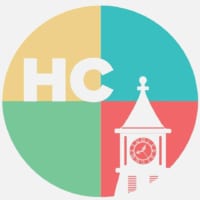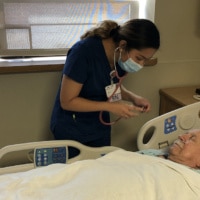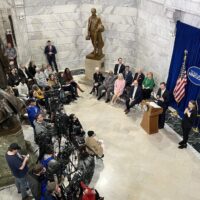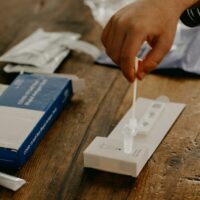More than a year ago, Christian County Public Schools joined a growing number of institutions across the country that closed in response to the coronavirus outbreak. Within a week, restaurants and bars had closed. Hopkinsville municipal offices shut their doors to the public. Kentucky became the third state to delay its primary election as Gov. Andy Beshear issued an executive order delaying the May 19 primary to June 23.
Then, Christian County confirmed its first case of COVID-19.
One year later, Hoptown Chronicle readers reflect on how the pandemic has reshaped their lives.
‘Now comes the hard part’
Retiree Betty Howard kept busy before the pandemic hit.
“I miss the discipline of a routine,” Howard said. “With that routine came my contact with people, my classes at the Y, my trips to the grocery and my favorite haunts like T.J. Maxx, Aldi, Big Lots.”
But when the pandemic hit, that routine — and the contact that came with it — went out the window.
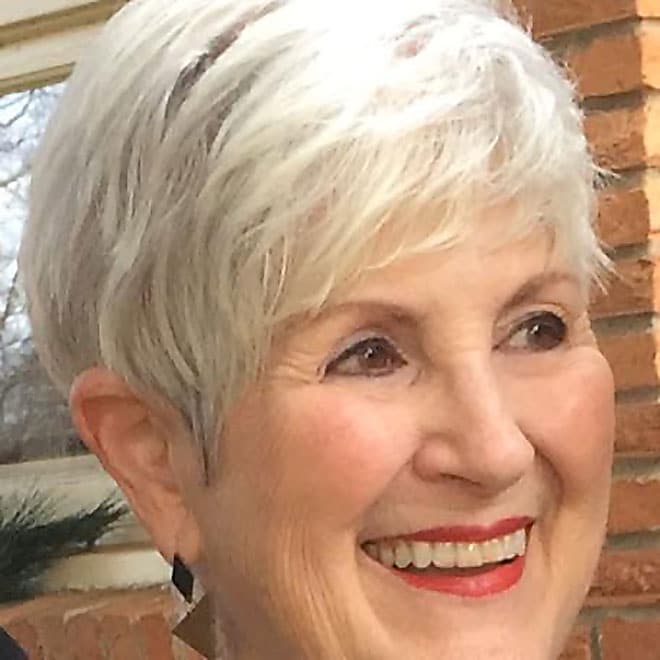
Eventually, she became accustomed to a new routine, “one of being home and sleeping late and having nothing I really had to do.”
The pandemic brought other changes, too. When Howard’s husband was admitted to the hospital, COVID-19 restrictions prevented her from being able to visit him. However, their adult children’s new routine of working virtually means they could come home to help their mother during this tough time.
But a year into the pandemic, it’s isolation that has become routine.
“Now comes the hard part. As the world begins to open back up, my routines are slowly coming back to life and I’m not sure I like it,” Howard said. “I enjoyed sleeping late, having nothing I had to do, getting some household things done that I had put off.
“My body and my mind now have to get back to a schedule and I’m finding it difficult to go back. I often wonder if anyone else shares this feeling.
And it’s difficult to upset a routine. I’m slowly getting back into life, but it is very difficult for me. Do others share this? I would love to know.”
From a ‘small bubble’ to a ‘new normal’
For about 10 years, Pamela Ison-Glover gathered with three or four friends every Wednesday evening for dinner.
“We just talked about our week, current events, children and husbands,” said Ison-Glover, a Hopkinsville audiologist. “When that was not available, I realized how important interactions are to my well-being.
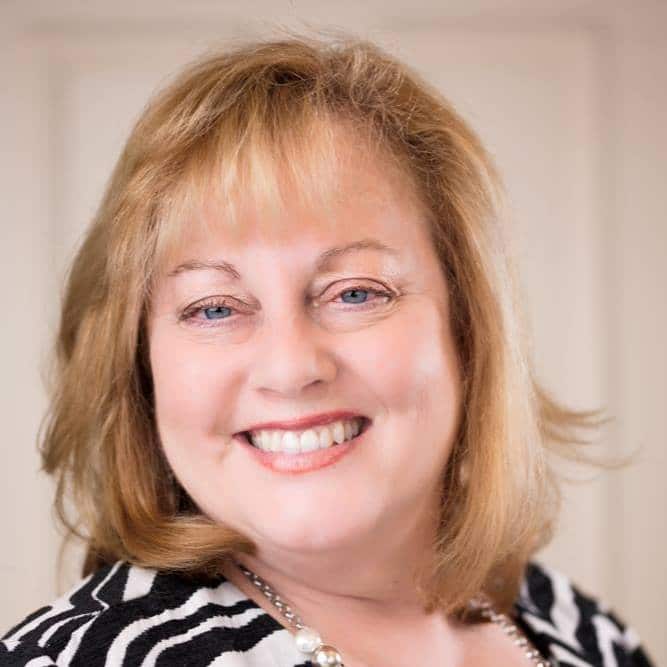
“I had no idea how much I needed to be with my friends until they were not available.”
On the other hand, Ison-Glover said she has saved quite a bit of money not going out every week, and that the pandemic has made her more cognizant of how she spends her money.
The year has been one of reflection for Ison-Glover.
“What is most important in my life? Without a doubt, I realized my family and their well-being is the top priority in my world.”
“I had no problem wearing a mask and staying socially distanced to keep them safe. Every time I felt sorry for me, I remembered each of them and the pain I would have if I infected them. I think I have come out of this a different person. I care deeply for others and how I can best help them stay safe. I must admit that I am saddened by all those that haven’t seemed to care about infecting others and have gone on with their lives.”
As she reflects on the initial reaction to COVID-19 and how things have evolved in the last year, Ison-Glover likened the public response to the reaction that followed the AIDS epidemic.
“I was working at Fort Campbell and we were seeing patients that were rotating back from Europe with ARC marked on their charts,” Ison-Glover said of the acronym for AIDS-related complex. “We had no idea what that meant and when we found out we were scared that we could get infected just through touching the patient. We were told we had to wear gloves and masks.”
At the time, Ison-Glover was pregnant with her son.
“It was a scary feeling. Then, as more information became available, we began to relax and not worry as much that we could get infected. Knowledge is a powerful tool. [So is] understanding that as knowledge changes how we approach the health crisis will change.
“We are still wearing face coverings, but I am no longer wearing gloves with patients that are asymptomatic. The evidence has shown that the virus does not stay long on surfaces and the primary means of transmission is through the mouth and nose.”
Ison-Glover recently got to see her dad and brother for the first time since July. They’ve all been vaccinated. She’s looking forward to getting together again with friends.
“Now, I must navigate how to re-emerge from the small bubble of my world back to what will be the new normal.”
‘Gratefulness and heartbreak’
“I can’t seem to find the words to describe how much of an impact this has had on us, our kids, and our business,” said April Huff-McClure, who owns The Corner Coffeehouse with her wife, Amanda Huff-McClure. “COVID-19 restructured our lives completely.”
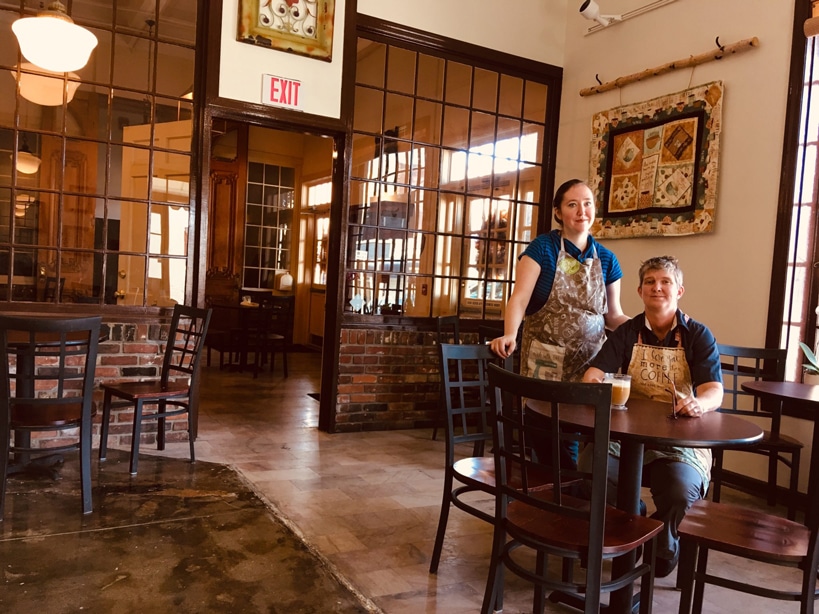
Their family has experienced both gratefulness and heartbreak during the coronavirus pandemic — once getting past the initial shock and fear.
“We’ve been lucky in keeping our heads above water. I’ll absolutely never forget the generosity of those that could, and the self-centeredness, selfishness and disregard from those who were capable of making good choices, yet didn’t. The financial wounds are recoverable. I just hope that the emotional scars fade with both time and understanding. My priorities, though, have never been clearer. I’m thankful for that.”
Thankful to be with family
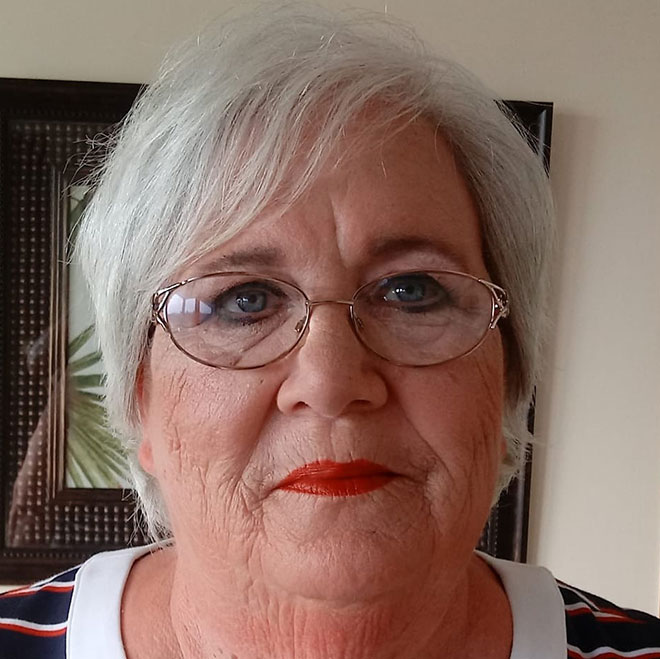
Linda Saber is 70 years old and has several health issues that classify her as high-risk for COVID-19. For the first six months of the coronavirus pandemic, she didn’t go anywhere.
Now, she goes out to the grocery store, pharmacy and for other essential items — always wearing a mask and using hand sanitizer.
“I am so sick of this, but I live with my daughter and grandson so I’m not alone,” Saber said. “I’m truly sorry for the people who are alone, can’t be with family.”
Old routines had purpose
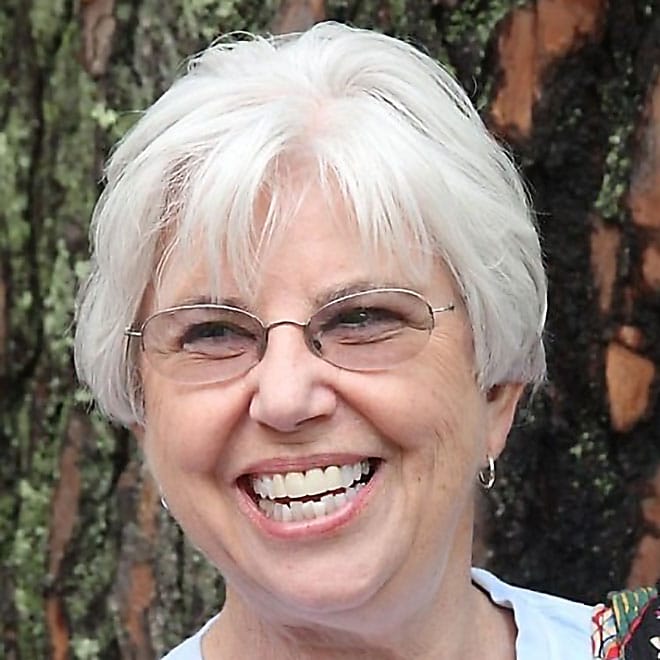
Betty Smith, 78, volunteered four days a week at a local elementary school, as well as intermittently at other places, before the coronavirus pandemic.
“Doing so, gave me a purpose and made me feel useful,” Smith said. “This past year certainly changed that.”
Smith recently received the COVID-19 vaccine and is trying to patiently wait for life to return to an enjoyable routine.
‘Solitude was socially acceptable’
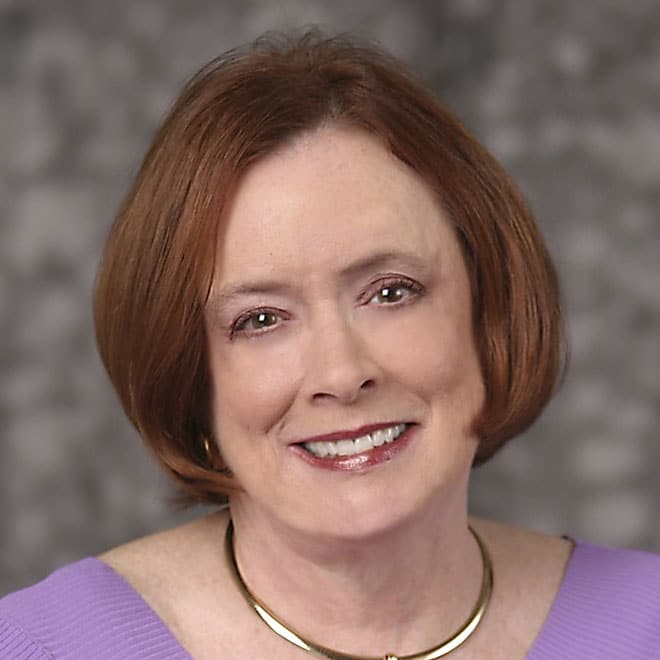
Hopkinsville resident Dennie B. Burke hated observing the politicization of COVID-19 and that she wasn’t able to celebrate Christmas with her entire family.
But the pandemic wasn’t all bad for Burke.
“What I enjoyed most during quarantine was reading all the books I wanted without feeling as if I were a hermit,” she said. “Solitude was socially acceptable.
“What I love most is that, as of now, it seems we are nearing ‘normal’ again.”
